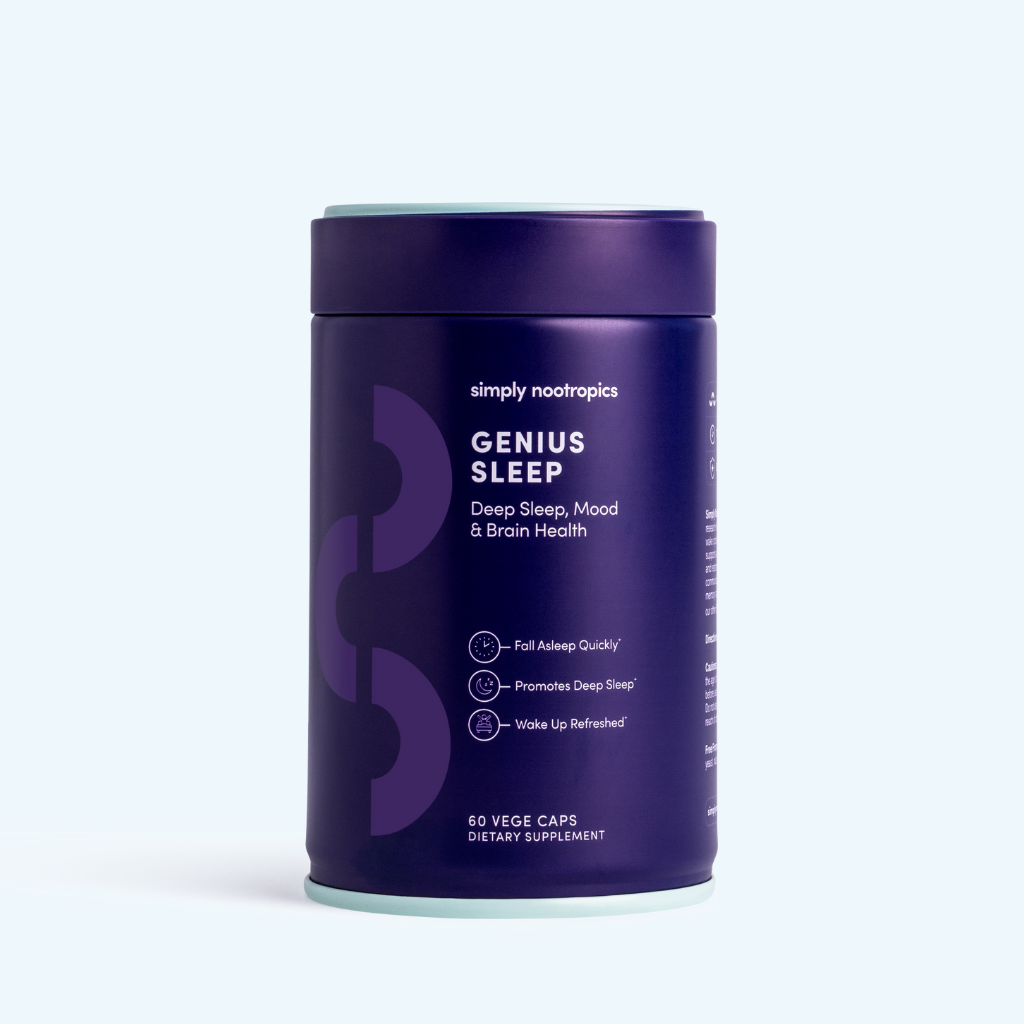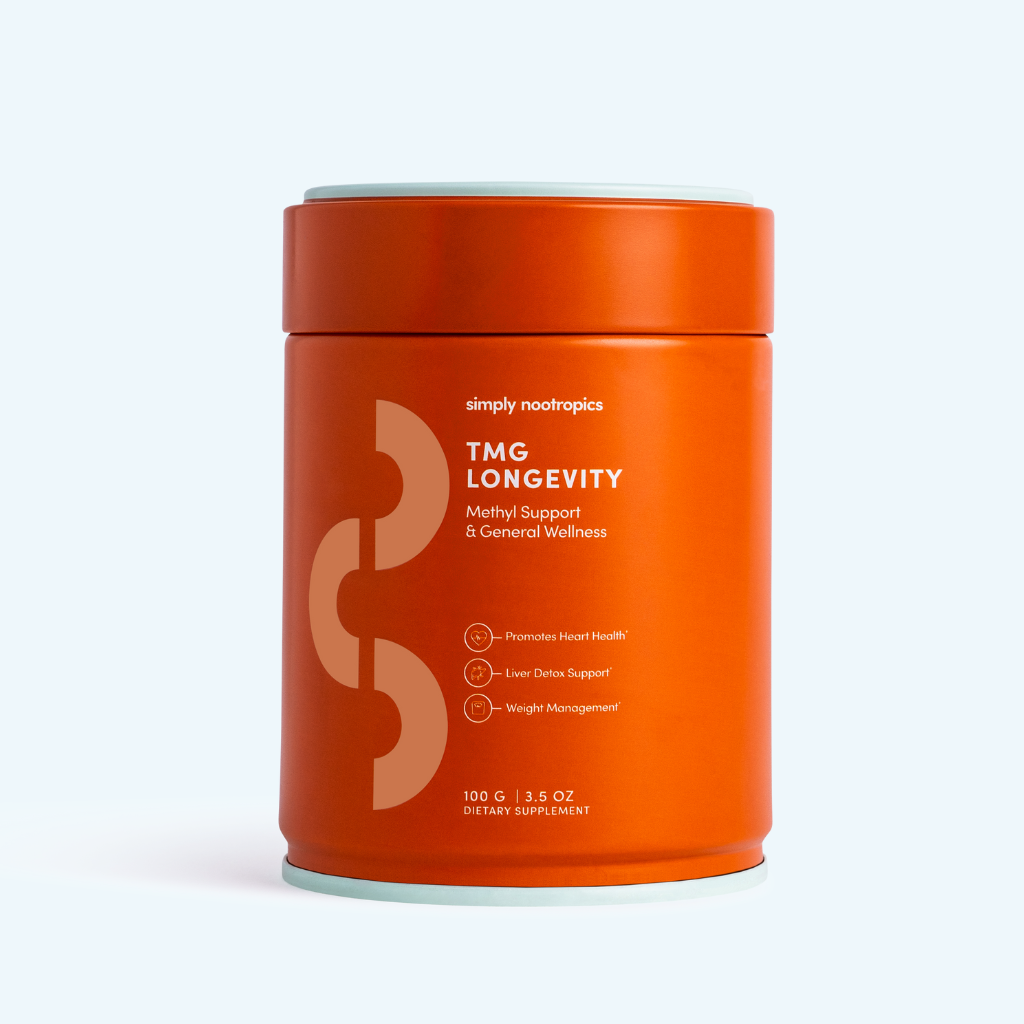Vitamins and macronutrients get all the attention in nutrition discussions, but did you know that minerals are equally important in keeping your body running smoothly? These essential nutrients act as cofactors for over 300 enzymatic reactions, power cellular energy production, and control everything from how your brain makes neurotransmitters to how your muscles contract.
Despite this, mineral deficiencies are becoming more common in developed countries, often flying under the radar while causing problems like poor sleep, persistent fatigue, and weakened immunity.
Take magnesium, for example. It's crucial for sleep regulation and managing stress response, which is why the targeted Magnesium Bisglycinate in Genius Sleep can tackle the underlying issue rather than just masking symptoms. Let's understand more about why mineral deficiencies are so common today and what you can do about them.
The Foundation of Cellular Health
Minerals are essential elements that the body cannot produce on its own. They act as cofactors for enzymes, meaning they make vital chemical reactions possible. Every heartbeat, thought, and muscle contraction relies on them. Without adequate intake, the body slowly loses efficiency in the systems that protect against ageing.
Key minerals linked with healthy ageing include:
-
Zinc – Supports immune defence, wound healing, and collagen formation. Deficiency is linked to impaired immunity and slower tissue repair.
-
Selenium – A component of antioxidant enzymes that protect cells from oxidative stress, one of the main drivers of biological ageing.
-
Calcium – Critical for bone density, reducing risk of fractures and frailty.
-
Potassium – Helps regulate blood pressure and cardiovascular health.
-
Magnesium – Involved in more than 300 enzymatic reactions, from energy production to nerve function and sleep regulation.
Each of these minerals contributes in different ways, but together they form a network of defences against decline.
The Problem of Small Deficiencies
In developed countries, outright mineral deficiencies are rare. But subclinical deficiencies, where intake is low enough to affect long-term health but not enough to cause immediate illness, are common. These are particularly concerning for longevity, because their impact accumulates over decades.
Why modern life leaves us short:
-
Soil depletion: Modern agriculture has reduced the mineral content of many crops.
-
Dietary patterns: Highly processed foods often strip away natural minerals.
-
Lifestyle factors: Stress, alcohol, caffeine, and some medications increase mineral losses.
The result is a slow, quiet erosion of resilience. Fatigue, weaker bones, poorer sleep, and more frequent infections may all trace back to gaps in basic mineral intake. Over time, those gaps translate into faster ageing.
Balance Matters as Much as Intake
It’s not just about how many milligrams of a mineral you consume, it’s how they interact. Minerals are interconnected, and imbalance in one can disturb another.
-
High calcium without enough magnesium can contribute to vascular stiffness.
-
Excess zinc without copper can impair neurological health.
-
Low magnesium reduces the effectiveness of vitamin D, weakening bones and immunity.
This balance is part of why longevity nutrition isn’t about megadoses. It’s about maintaining steady, appropriate levels that allow the body’s natural systems to run smoothly.
The Impact of Minerals on Ageing
Energy and Mitochondrial Function
Minerals such as magnesium, iron, and copper are involved in mitochondrial processes that generate ATP, the body’s energy currency. When intake is too low, mitochondria can’t function efficiently. The result is fatigue, reduced endurance, and cells that repair themselves less effectively. Over years, this contributes to slower recovery, reduced muscle strength, and a higher risk of age-related diseases.
DNA Protection and Repair
Selenium and zinc are critical for antioxidant defences. These minerals support enzymes that neutralise reactive oxygen species before they can damage DNA. Without them, oxidative stress accelerates, leading to mutations, shorter telomeres, and impaired cellular communication. In short, DNA becomes less stable, pushing the body closer to biological old age.
Cardiovascular Resilience
Potassium and magnesium regulate blood pressure and vascular tone. Adequate levels reduce strain on the cardiovascular system, lowering risk of hypertension, arrhythmia, and heart disease. A deficiency, even a mild one, can elevate blood pressure over years, raising the chance of cardiovascular events. Given that heart disease remains the number one killer worldwide, maintaining mineral sufficiency is a direct investment in lifespan.
Cognitive Health and Mood
The brain is mineral-hungry. Magnesium regulates neurotransmitters like glutamate and GABA, which balance stimulation and calm. Zinc influences synaptic plasticity, the basis for learning and memory. Selenium contributes to antioxidant enzymes that protect neurons from oxidative stress. Without these, cognition declines more quickly, and mood disorders like anxiety and depression become more likely.
Structural Strength and Mobility
Calcium, magnesium, phosphorus, and zinc all contribute to bone density and structural strength. Ageing often brings frailty: weaker bones, reduced balance, higher fall risk. Ensuring adequate mineral intake lowers this risk and preserves independence. Strong bones and connective tissue are longevity assets: they protect against the cycle of falls, fractures, and reduced mobility that shortens healthspan.
Practical Ways to Optimise Mineral Intake
Optimising minerals doesn’t have to be complicated. It starts with small, consistent choices:
-
Prioritise whole foods: Nuts, seeds, legumes, leafy greens, and whole grains are rich in magnesium, zinc, and selenium.
-
Diversify your diet: Rotating protein sources (dairy, beans, seafood, eggs) provides different mineral profiles.
-
Limit processed foods: These often replace nutrient-dense ingredients with refined calories.
-
Check hidden losses: Excess alcohol, caffeine, and stress can all deplete magnesium and zinc.
-
Use supplements strategically: Targeted supplementation can cover gaps, particularly for minerals most people fall short on, like magnesium.
Minerals and Sleep: The Final Piece
Of all the systems minerals influence, sleep is one of the most critical for longevity. Restorative sleep is when the body clears waste from the brain, repairs DNA, and resets hormonal balance. Without it, ageing accelerates at every level: energy, mood, metabolism, and immunity.
Magnesium is central here. It regulates melatonin, calms the nervous system, and promotes the deep sleep stages when repair is most active. But not all forms are the same. Forms like magnesium oxide are poorly absorbed and can cause digestive discomfort. Magnesium Bisglycinate is different.
By binding magnesium to the amino acid glycine, it achieves:
-
Higher absorption – more of what you take actually reaches the cells.
-
Gentle digestion – much less likely to cause stomach upset.
-
Added synergy – glycine itself promotes calm and supports restorative rest.
That’s why Magnesium Bisglycinate is included in Genius Sleep. The formula combines magnesium with other restorative compounds, like Reishi Mushroom, L-theanine, and passionflower, each chosen to calm the nervous system and improve sleep quality. The goal of Genius Sleep isn’t simply to help you fall asleep faster, but to support the kind of deep, rejuvenating sleep that slows ageing at a cellular level.
















